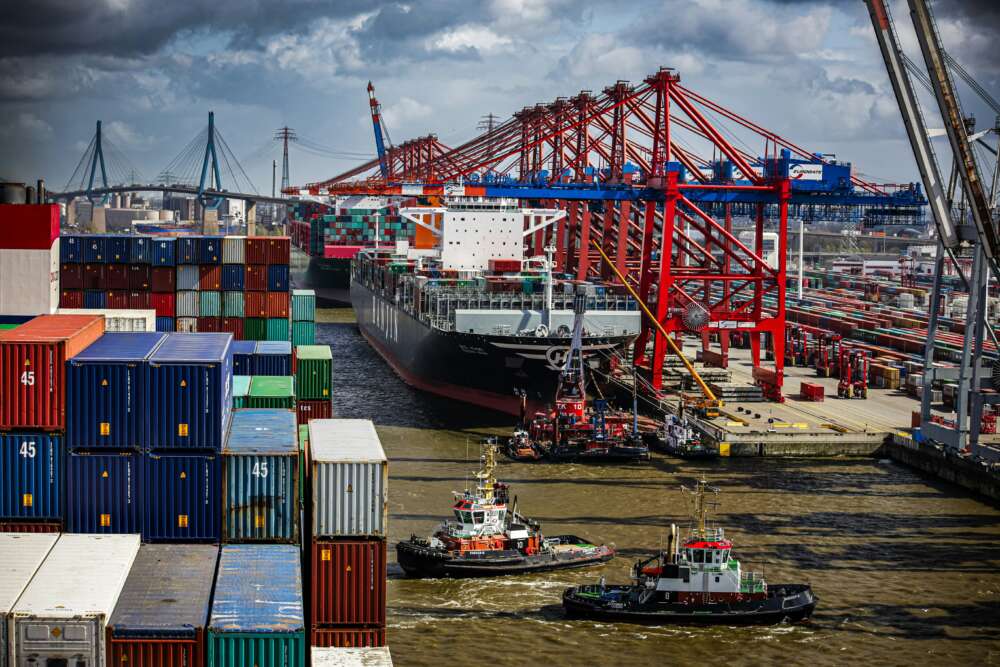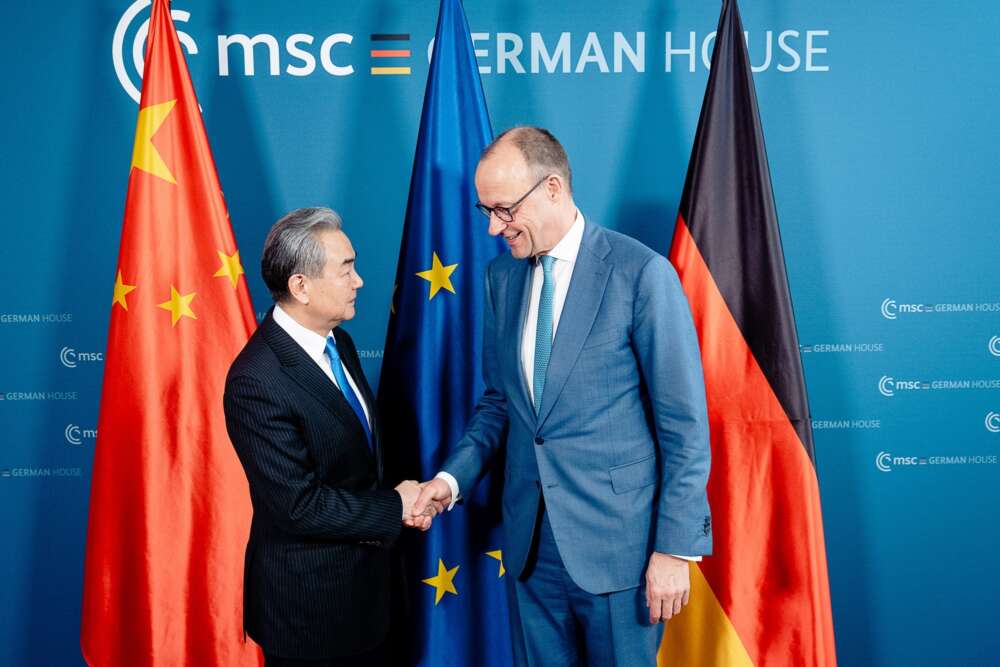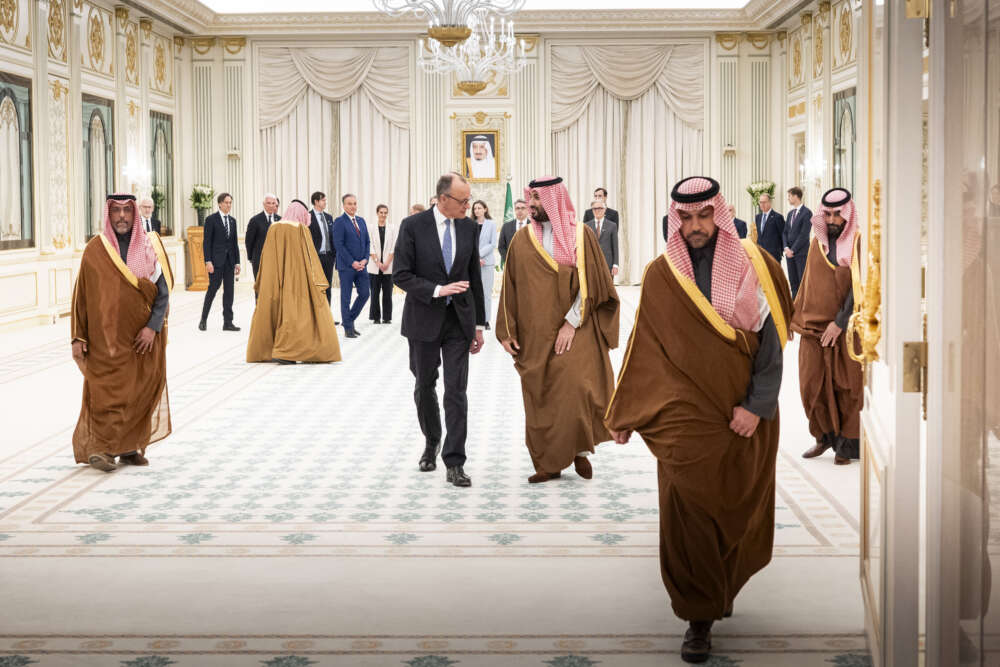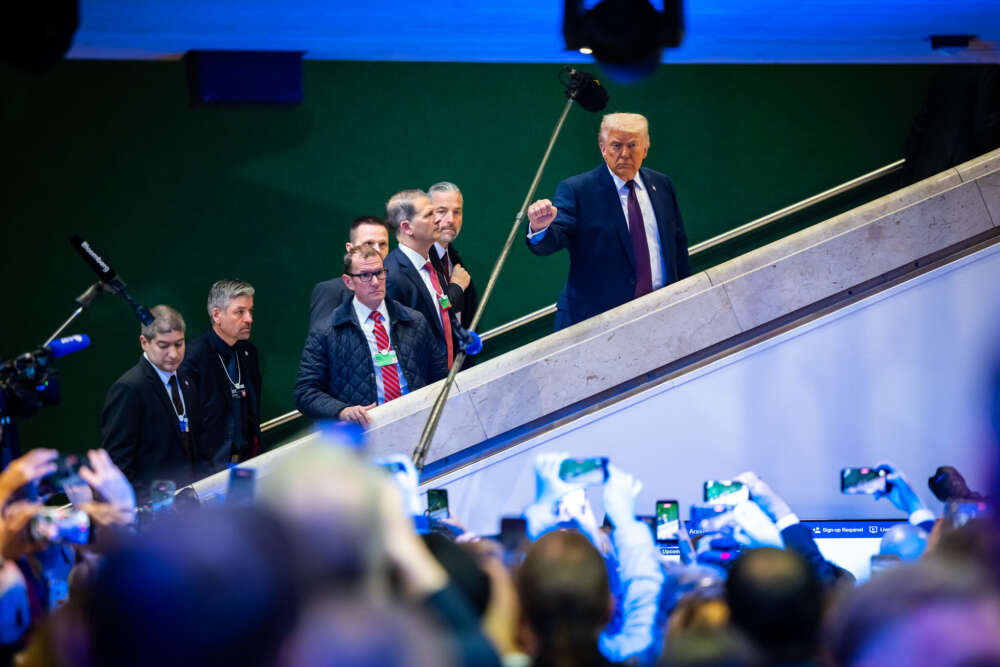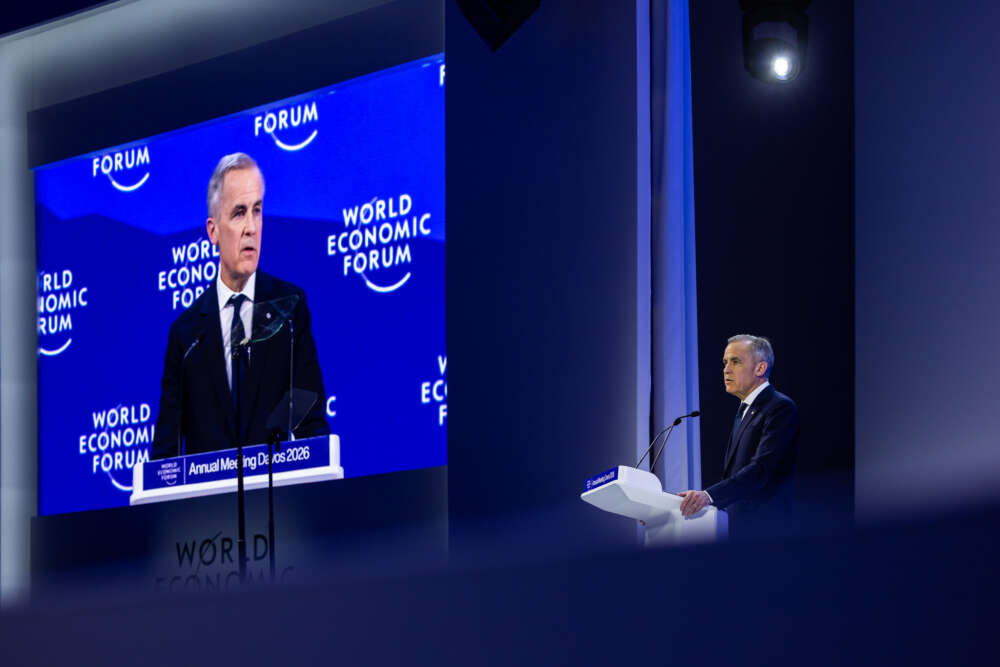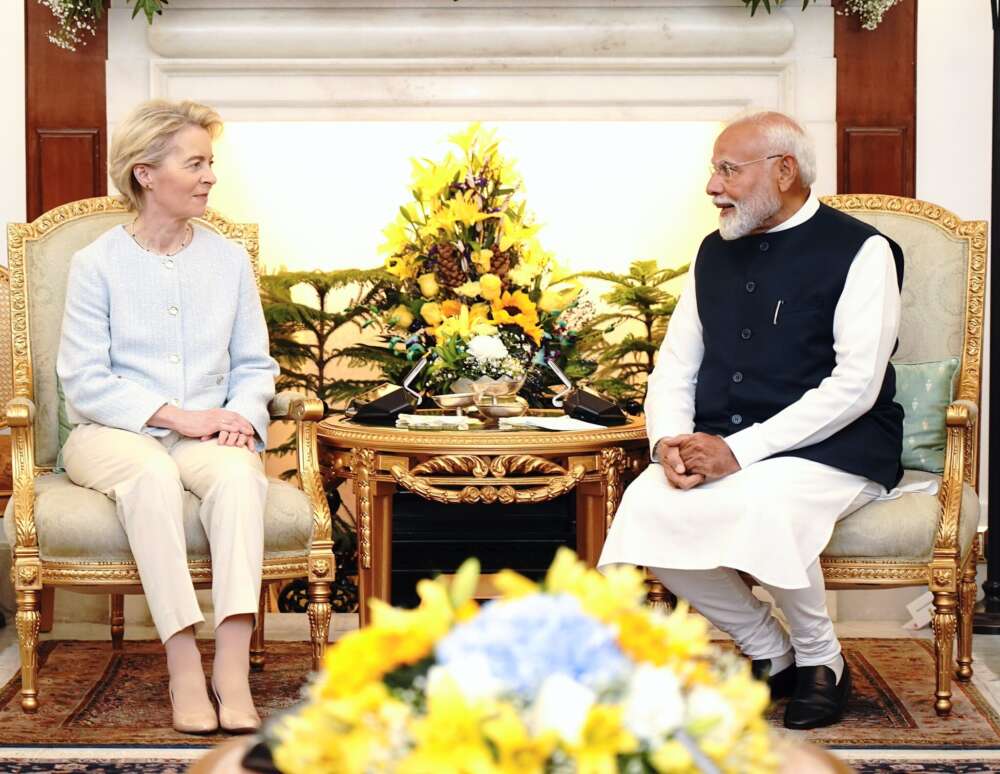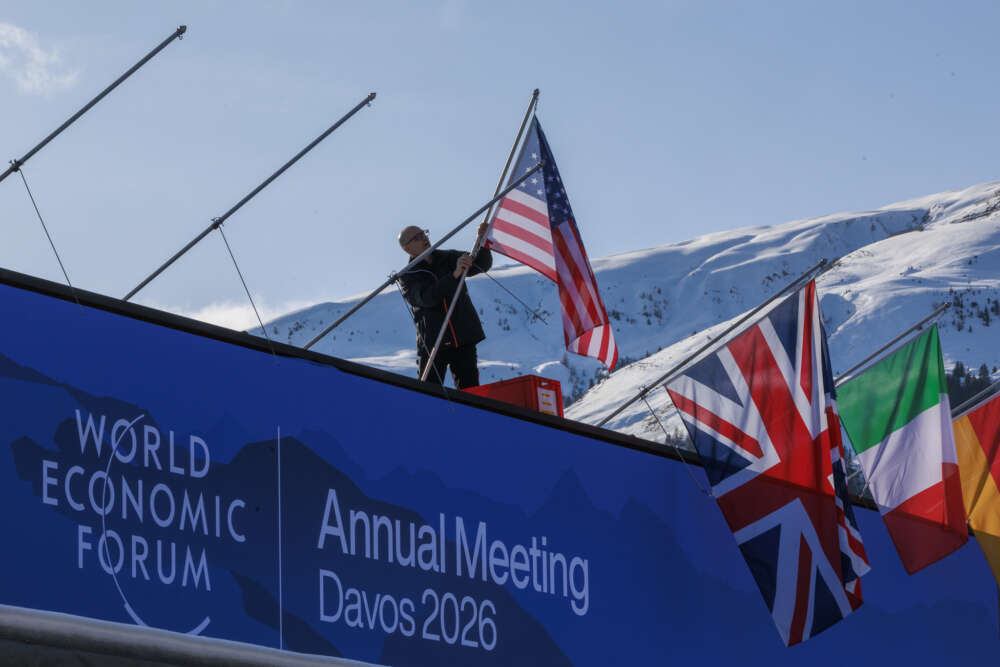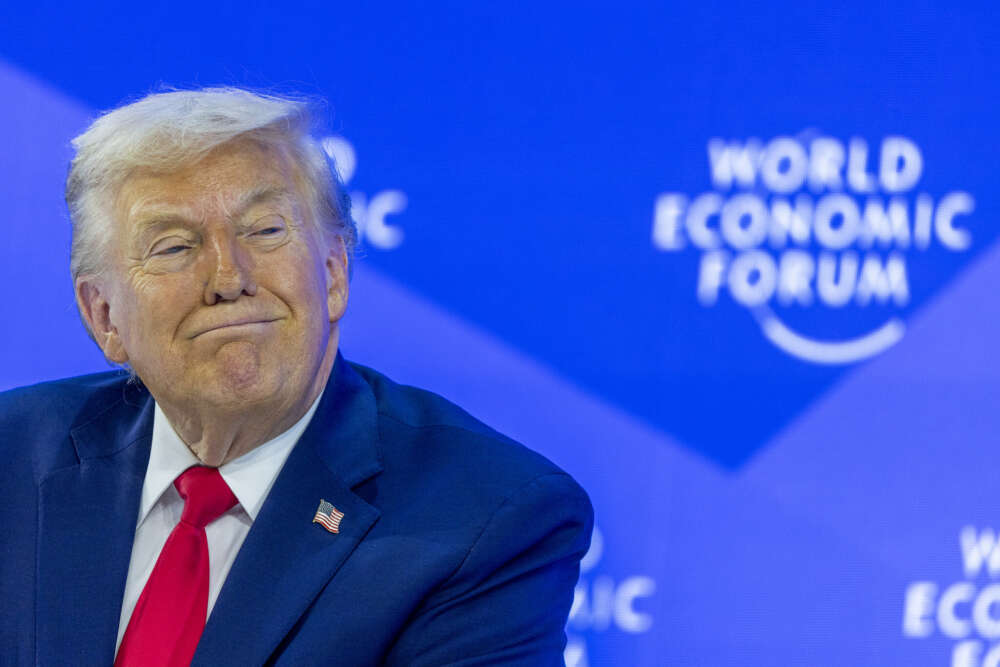Germany’s Acid Test: Systemic Competition
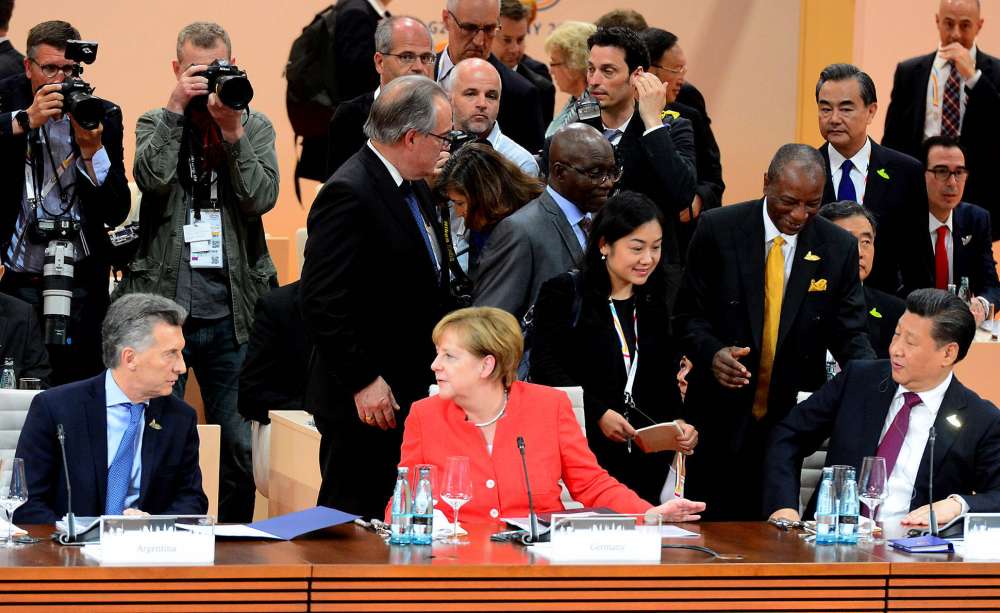
“While the market economies have won the economic struggle, this does not mean that the competition between the systems has been won once and for all.” So said Angela Merkel a good decade ago. The German chancellor, who, according to her biographer Stefan Kornelius, “loves to make comparisons and study systems,” is concerned about the democracy and social market economy model. Back in 2013, Merkel was fond of citing statistics about how Europe represents 7 percent of the world’s population and 25 percent of global GDP (both with a declining trend), but 50 percent of global social spending. At the time, Merkel warned that “we can really only maintain our prosperity if we innovate and if we take our cue from the best.”
Merkel could have added that this also applies to foreign policy. Germany — and Europe — can only be a relevant player in global affairs if it can build on the economic, technological, social and political strength of its own system of democracy and social market economy. As Kornelius wrote back in 2013, what the now-departing German chancellor fears is that “the liberal system might not survive, that democracy and the market economy might be too weak in the end.” Her message was that “the acid test for freedom is yet to come for the West.”
Merkel’s successor as chancellor will have to face the acid test of systemic competition. Although Merkel has personally been very concerned about the ability of the German model to compete, she has done a poor job of mentally preparing the country for this. Merkel herself rarely translated her concerns into a concrete political agenda.
“In her mind, Merkel is a revolutionary who thinks everything has to happen much faster,” said SPIEGEL journalist René Pfister. But for the most part, Merkel kept those revolutionary thoughts to herself and did not even try to convince citizens that there was a need for an ambitious reform agenda, nor did she try to organize political majorities to this end. As a result of her own experiences, Merkel shied away from the political costs of confronting what she saw as a change-resistant West German population with an ambitious agenda.
As opposition leader, she had her fingers burned. In 2003, Merkel got her party, the center-right Christian Democratic Union (CDU), to adopt a far-reaching reform agenda in preparation for the next election campaign. Anyone reading the speech Merkel gave at the CDU party conference in Leipzig in December 2003 today would be amazed by the combative tone and the spirit of optimism of the “second founding years” that Merkel invoked: “We, the Christian Democratic Union of Germany, have the programmatic strength, the intellectual claim to leadership, and the political will to move Germany forward again! Because Germany can do more.”
“Let’s unleash the forces of awakening,” she exclaimed, speaking of necessary reforms in all central areas, “and in the head and the limbs.” She painted a picture of a country that had fallen behind and that must face the “irreversible” realities of global competition and technological revolution: “The truth is unsparing, and that is why it cannot be called by its name often enough. Germany is at a crossroads. The alternative is clear, dear friends: either be overrun by change, or shape change.”
This tone was never heard again from Merkel through her time as chancellor. And for good reason. In 2005 she almost missed out on what was thought to be a certain election victory against Gerhard Schröder and his Social Democrats (SPD). The then incumbent chancellor made an impressive comeback in the election campaign, partly by attacking the social coldness of Merkel’s reform agenda. Merkel became chancellor by a narrow margin. And drew the lesson that it is easier to win elections in Germany if you promise voters coziness rather than tough reforms.
Merkel was helped by the fact that the economic situation took a turn for the better during her term in office by itself, without her having to take politically costly actions. High unemployment figures and high budget deficits in the Schröder years turned into a booming labor market and full state coffers for much of Merkel’s 16 years as chancellor. All this happened without far-reaching reforms of the labor, social, and education systems or massive investments in research and development, digitalization, and public infrastructure.
The Peculiar Crisis Chancellor
Merkel was the crisis chancellor who steered Germany through the financial and euro crises, refugee crisis, and coronavirus crisis. But economically, the Merkel years did not feel like a crisis to most Germans. On the contrary, they were what may turn out to be the last golden age of the German model. The export-oriented economy was very successful in its core industrial sectors, both in the eurozone and globally. While the party system showed signs of fragmentation, Merkel was able to stay at the top for four legislative periods.
Germany’s rapid growth in foreign policy prominence during the Merkel years can be attributed to both its economic strength and relative political stability. Many in the Berlin foreign policy bubble seemed flattered when foreign media referred to the city as the “new Brussels” or the “new Paris”: the place where, supposedly, the most critical decisions for Europe were being made. But ultimately, it was not so much Germany’s special focus on foreign policy that laid the foundation of Berlin’s new importance during the Merkel years, but rather the relative weakness of other European countries (first and foremost France, particularly before Macron took office).
Germany enters the post-Merkel era with many looming uncertainties. The Merkel years did not resemble the “second founding years” she envisioned in 2003. Neither Germany nor Europe is leading the way when it comes to many new technologies. The story of BioNTech, a German company that emerged as a global leader in a critical new technology, is the exception. Whether German industry can keep up internationally in the leap to climate-neutral production will be decided in the next few years. The climate-friendly transformation will lead to tough political conflicts, and tighter public budgets will make political compromises more difficult.
The fact that, according to opinion polls, a majority of voters do not trust any of the parties to solve the country’s problems and that the election campaign in no way has done justice to the political challenges ahead is cause for concern. A much higher degree of political turbulence as the party system continues to erode is not an unlikely scenario.
Neither economic strength nor political stability, the two cornerstones of the Merkel era’s foreign policy prominence, are guaranteed. At the same time, the systemic competition promise to become tougher. Democracy, the open society, and the social market economy are being challenged by authoritarian forces, both from within and without.
In some European Union member states, such as Hungary, these forces already hold the levers of power, as they do in NATO partner Turkey. In the next US presidential election, Trumpism could win once more. The Kremlin, though economically weak and corrupt, is posing increasing challenges to European democracy and open society. And the Chinese party-state shows that it is possible to combine increasingly radical authoritarianism with economic success. That is why Chinese-style authoritarian state capitalism poses the most difficult challenge in the competition of systems.
All three candidates for chancellor have made this an issue in the election campaign year. CDU party leader Armin Laschet spoke of a “systems competition with China” through the pandemic. The Greens’ Annalena Baerbock said in a joint statement with co-leader Robert Habeck: “We are in a global competition between democratic and autocratic systems.” And the SPD’s Olaf Scholz said in a speech at the German Council on Foreign Relations (DGAP): “We are indeed experiencing a new competition of systems, but we can approach it with self-confidence and commitment.” In order to be truly “self-confident and committed” in the competition of systems, both defensive and offensive measures need to be strengthened.
Defensive Measures
Not only do authoritarian systems respond to criticism from within by taking brutal action, they also seal themselves off from unwelcome influences from outside. Russia, for example, imposes bans on foreign non-governmental organizations. China continues to restrict the work of independent foreign journalists and has imposed sanctions on researchers, including those associated with the Mercator Institute for China Studies (MERICS) in Berlin, for example. The research cooperation that is tolerated primarily serves Beijing’s own technological and economic interests.
Democracies, on the other hand, are largely open. Authoritarian systems use the asymmetry of unilateral openness to exert influence, be it through disinformation and propaganda, building economic dependencies, or “buying” democratic elites from business, politics, and academia.
A crucial way to counter this behavior is through transparency. PR agencies, lobbyists, academics, lawyers, bankers, and other service providers should be required to disclose if they act on behalf of authoritarian systems and their companies. The new federal government should launch a transparency register for mandatory reporting. Transparency will then enable a critical public to discuss these relationships in a more informed manner. State institutions as well as all private institutions committed to an open society should take this information into account when awarding contracts.
The new federal government, in cooperation with the states, should insist that publicly funded universities and research institutions in Germany and Europe do not accept money from non-democracies. The fact that the Freie Universität Berlin, for example, accepted money from the Chinese state to establish a professorship shows how far it has strayed from its founding ideals. At the very least, however, universities and even think tanks should have to disclose funds they receive from non-democracies. Activists should not have to fight for such disclosures in painstaking detail through costly freedom of information requests, as David Missal, for example, does when it comes to Chinese money at German universities.
The Poison of Corruption
Strengthening anti-corruption efforts should be another priority for the democratic camp in the competition of systems. That’s because authoritarian states use “strategic corruption” as a weapon for political influence, as demonstrated, for example, by the scandals involving German politicians who received funds from Azerbaijan. For this reason, too, the US government under President Joe Biden has made the fight against corruption a priority, including as part of the “Summit for Democracy,” which will be held for the first time in December 2021.
Biden is asking participating countries to present their own contributions. The German government should introduce the intensification of its own fight against “strategic corruption” and kleptocratic networks as its own initiative. This includes promoting investigative journalism and research on the topic. The fact that democratic elites sell out to authoritarian states or allow themselves to be bought by them undermines the reputation of democracy.
Germany does not have to worry about losing out to kleptocracies like Azerbaijan. But it should be concerned about how strategic corruption by Azerbaijan can poison trust in democratic elites while also being grist to the Kremlin’s mill. The latter does not even try to portray its own system as more virtuous, but it does want to “expose” democracies as at least as corrupt as its own. Even if it is not a matter of outright corruption, as in the case of former German Chancellor Gerhard Schröder’s involvement with Rosneft and the Nord Stream pipelines, the damage caused when democratic elites sell out is immense.
This makes it all the more important for the new German government to clearly distance itself from such activities. Former politicians like Rudolf Scharping (an ex-SPD leader and onetime defense minister), who monetize their contacts with their own consulting firm, acting as lobbyists for the Chinese party-state, for example, should be denied informal access to information from ministries. Politicians and others should also refuse participation as speakers at events organized by, for example, Scharping’s consulting firm, such as the “German-Chinese Economic Conference.” That would make it more difficult for those who open doors for authoritarian systems to do business.
And Angela Merkel can do the country a great service by embodying, as a former chancellor, the opposite model to the only living former chancellor, Schröder: putting herself in the service of the public good, incorruptibly and uninterested in personal wealth, instead of acting as a greedy stooge for authoritarians.
Another central goal should be to reduce economic dependencies on authoritarian systems, whether in value chains or sales markets, in order to protect Germany from being used as a weapon by system rivals. Companies that are disproportionately dependent on China as a market, for example, must be given a clear signal that they enter this dependence at their own risk and that politicians will not take this into account when positioning themselves vis-à-vis Beijing.
The next German government should also support German companies in diversifying in order to reduce dependence on individual markets like China where necessary. That Merkel wanted to cut back on the security of the critical 5G infrastructure and spoke out in favor of approving the high-risk provider Huawei because she feared sanctions against German companies in China only serves to underline the need to change course. It is a good sign that the Federation of German Industries (BDI) recently issued a very thoughtful discussion paper on “responsible coexistence” with authoritarian systems
When it comes to investment reviews, Germany should not only pay attention to selling out technology, but also avoid dependence on systemic rivals, especially in the area of infrastructure. The motto issued by Hamburg Mayor Peter Tschentscher with regard to the Chinese terminal operator Cosco’s involvement in the Hamburg container terminal: “What makes business sense must also be possible and done in practice,” shows that there are still lessons to be learned — this cannot be the motto in sensitive areas.
In addition, there is a need for a collective security mechanism among like-minded states against coercive economic and political measures, especially by China. Democracies must stand together and take countermeasures when Beijing strongarms Australia through economic punitive measures or takes Canadian citizens hostage to put pressure on the government in Ottawa.
It is true that not only autocracies like China but also the US use dependency as a weapon, even against allies. The US sanctions against Europe with regard to Iran and the Nord Stream 2 gas pipeline are examples of this. This is why it is all the more important that there is an agreement with the Biden administration not to use sanctions as a weapon among democracies.
Investing in Democracy
Defensive measures are needed, but it’s investing in its own strengthen that’s decisive for Germany to successfully compete with authoritarian systems. The “new founding years” that Merkel once envisioned for her first term in office provide a good model for the post-Merkel years. This is precisely the can-do spirit and ambition that Germany needs now.
Democracy, the social market economy and an open society must once again go on the offensive, both nationally and internationally. This requires massive investments that would better position the state, industry, and society for digital transformation and de-carbonization. Unlike Merkel’s 2003 deliberations, which were still strongly influenced by neoliberal adaptation to globalization, the state has a key role to play here.
In principle, these goals are part of the programs of all three candidates for chancellor: whether Laschet’s “modernization decade” or the “investment offensives” of Baerbock and Scholz. Any new coalition government will have the task to fill this program with life as opposed to weighing it down with existing bureaucratic regulatory constraints. Previous experience with the federal innovation agency “Agentur für Sprunginnovation” — which is shackled by existing rules and regulations for public institutions — clearly shows this.
Only if Germany and Europe secure technology leadership can they sustainably shape standards for new technologies in their own interests, also vis-à-vis system competitors such as China. And the stronger Germany and Europe are economically and technologically, the more they can use this strength to more effective shape international institutions.
System competition also plays a major role in multilateralism. In institutions of like-minded democracies such as the EU, Germany must work hard to ensure that member states adhere to jointly agreed standards of the rule of law. As such, it is important to learn from the failure vis-à-vis Hungary during the Merkel years. In forums like the United Nations that bring democracies and non-democracies together, Germany and Europe must forge effective alliances for universal human rights, and counteract efforts by Beijing to redefine them.
Multilateralism also means seeking cooperation with system competitors, for example in global health or climate protection, something that should take place without illusions. A June 2020 position paper from the SPD parliamentary group very correctly notes that “System competition ultimately determines the extent to which the partnership with China can be shaped in concrete terms.” Such an observation can also be applied to the Kremlin. The pandemic experience underscores this, whether it is Beijing’s blocking of investigations into the origin of the pandemic or the Kremlin’s propaganda around the Sputnik V vaccine. Hopes for cooperation on global problems such as the climate crisis in no way justify soft pedaling with Beijing and Moscow when it comes to other issues.
In all of this, we need to be capable of self-criticism in the face of our own failures, and be open to learning from others (including systemic rivals). We need curiosity and ambition, and the will to not just defend but renew our own democracy. As Thomas Bagger aptly wrote recently: ” One of the most difficult challenges for Germany’s new government will be to make Germans face the reality of a tougher world.” These impositions are easier to bear if one has the well-founded confidence that one’s own system can cope with them and shape a better future.
This commentary was originally published by Internationale Politik Quarterly on September 10, 2021.
It is part of a project on re-thinking European China policy supported by the Open Society Foundations (OSF).
